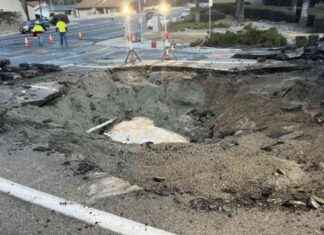78% of tile companies, which account for 59% of ceramic flooring production, present a high risk in the face of the energy crisis. According to a risk map prepared by the consultancy PwC Spain presented yesterday in Castelló, of that total there are 36% that are at “maximum risk”, companies with a low or even negative margin for which raw materials represent a great weight in the income statement and in which profitability is very sensitive to variations in their prices.
They are responsible for 42% of the production of a sector on which 73,000 workers (directly or indirectly) depend in the province of Castellón and whose most involved towns are Villarreal, Onda, Alcora, Nules and Castelló de la Plana. It represents a third level of employment in the province and 2.4% of Spanish industrial employment.
The data, presented yesterday by the Spanish Association of Tile and Ceramic Floor Manufacturers (ASCER) at its headquarters in Castelló de la Plana is another of the instruments used by the sector to argue the need, already urgent according to their estimates, for the central government to inject more aid.
They asked President Pedro Sánchez in person last week during his visit to the capital of La Plana, and yesterday the claim was also endorsed by Minister Arcadi Spain, who urged the Executive to “materialize as soon as possible” aid “for companies, workers and workers” from a sector “that contributes a lot to society due to its great economic contribution in terms of GDP, employment and tax collection”.
The president of ASCER, Vicente Nomdedeu, pointed out that the situation is due to “causes totally beyond his control” and pointed out that the current one is “the worst situation that we can remember in recent history, and that it seriously threatens the future of the entire cluster.” Nomdedeu made evident the existing concern in the sector about the short-term future due to “the lack of urgent and comprehensive aid because the economic deterioration of the companies is taking too long with irreparable repercussions”.
The request of companies and the Generalitat Valenciana is also joined, now in writing, by the mayors of 18 towns in the province who met on Wednesday afternoon to sign the manifesto Salvem la ceràmica that, they claim, “in reality is to save the province”.
The text makes it clear that “the mayors of municipalities with a ceramic industry are aware that their neighbors suffer the negative effects caused by the excessive increase in energy costs.”
While waiting for a specific response from the Sánchez government, the localities are even preparing banners that will be hung in the town hall buildings to make visible the collective concern for the sector that nourishes the Castellón economy.








